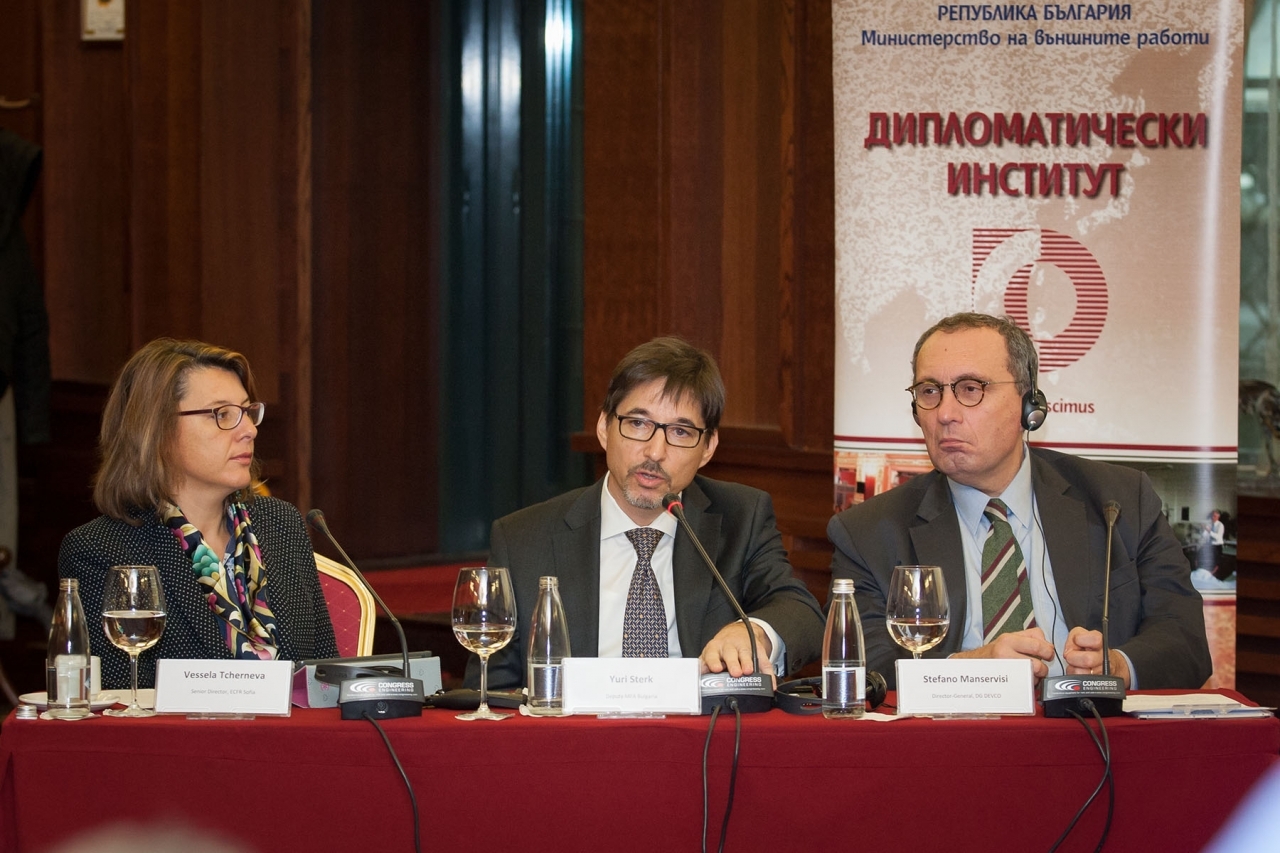The Deputy Minister of Foreign Affairs Yuri Sterk today took part in a panel discussion on “The Benefits of Globalisation and EU Development Policy. Challenges to the Bulgarian Presidency,” organised by the European Commission Representation in Bulgaria and the Diplomatic Institute under the Ministry of Foreign Affairs. Stefano Manservisi, Director-General of the European Commission’s Directorate-General for International Cooperation and Development, was a special guest of the event.
Deputy Minister Sterk emphasised that in the development policy area, the Bulgarian Presidency of the Council of the European Union will focus its efforts on further implementation of the 2030 Agenda for Sustainable Development. He added that attaining the 17 Sustainable Development Goals on the Agenda will be discussed in accordance with the new European Consensus on Development, approved in June 2017.
Stressing that the Bulgarian Presidency priorities in the area of development are an integral part of the priorities of the Estonia, Bulgaria and Austria Trio, Deputy Minister Sterk informed his audience that the Presidency will pay special attention to the various dimensions of migration and forced displacement, including the efforts to address the root causes of migration. Strengthening developing countries’ resistance in accordance with the Global Strategy for the European Union’s Foreign and Security Policy will also figure high on the Presidency agenda. The Bulgarian State will devote efforts and special attention to the challenges facing young people and children, considering their roles for the attainment of the Sustainable Development Goals. “Within the framework of the Presidency, Bulgaria will also be committed to direct operationally three working groups at the EU Council: on Development Cooperation, on Africa, the Caribbean and the Pacific, and on Humanitarian Assistance and Food Aid, through which the EU shapes and implements its development policy,” Yuri Sterk added.
“Development is a common global task. Bulgaria, as part of the international community and as EU Member State, honours its commitments through its national development cooperation policy,” the Deputy Minister emphasised. He outlined the priorities of the Bulgarian development policy within the framework of the Medium-Term Programme for Development Aid and Humanitarian Assistance for 2016-209, adopted by the Council of Ministers, in geographic and thematic terms. In geographic terms, the Bulgarian development policy concentrates on partnership with countries of the Western Balkans and the Eastern Partnership. Deputy Minister Sterk also presented the thematic fields of action which are: supporting and building democratic and responsible institutions, capacity building in support of security and development, protection of human rights and migration issues.
For his part, Stefano Manservisi highlighted the role of the European Union as the largest development aid donor. He noted the need to change the industrialised countries’ perspective. What matters is the partnership principle as fundamental to shaping policies and taking action in development cooperation partner countries. He attaches prime importance to the participation of countries like Bulgaria, which have gone through a transition period and can share good practices as well as the experience of mistakes with partner countries. Stefano Manservisi said during the discussion that in 2018 the European Commission will pay special attention to prevention and combating domestic violence and violence committed against women, as part of the gender policy within the framework of development.

